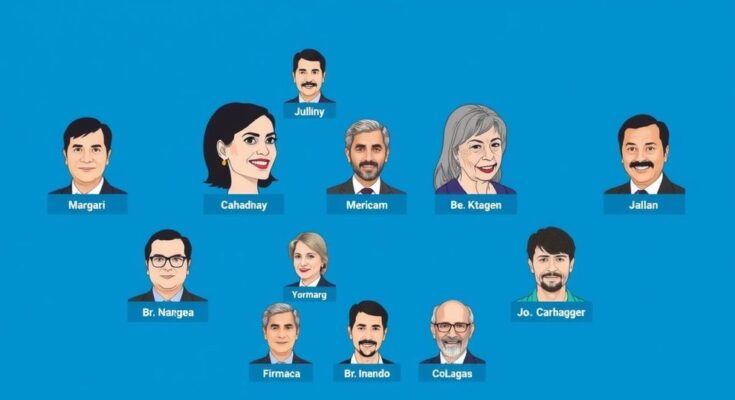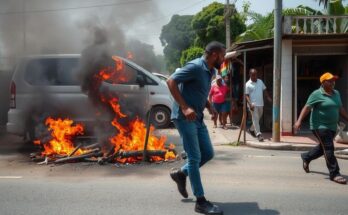Uruguay is set to elect a new president on Sunday amid significant challenges such as crime, child poverty, and an aging population. Current President Luis Lacalle Pou is ineligible to run again due to term limits. The election is pivotal for determining the direction of governance, with a choice between the ruling conservative coalition and a moderate leftist alliance. The outcome will influence domestic policies and international trade agreements, particularly with China.
One of Latin America’s enduring models of political stability, Uruguay is poised to conduct its presidential elections on Sunday. The voter population, totaling approximately 3.4 million, faces key challenges including rising crime rates, pervasive child poverty, and the implications of an aging demographic. This election holds significant importance as it will determine the future political landscape following the tenure of President Luis Lacalle Pou, who is ineligible to seek re-election due to constitutional term limits. The contest primarily stands between the ruling conservative coalition and an emerging moderate leftist alliance. The left coalition had previously governed from 2005 to 2020, during which it implemented significant reforms such as the legalization of marijuana and an increased emphasis on renewable energy initiatives. A change in administration may halt the progress on a potential trade agreement with China, as the leftist candidate, Yamandú Orsi, has publicly expressed a preference for negotiating through Mercosur, an economic bloc comprising several South American nations. Regardless of the election’s outcome, the new administration will need to confront critical issues, including the alarming rise in violent crime and the challenges posed by drug trafficking, which have begun to infiltrate what has historically been regarded as one of the most peaceful nations in South America. The manner in which these candidates address these pressing societal concerns will play a substantial role in shaping Uruguay’s future governance.
Uruguay, characterized by its relative political and economic stability within the context of Latin America, approaches a significant electoral event in 2024. The country’s political atmosphere is marred by pressing issues that resonate with voters: crime, child poverty, and a demographic shift toward an aging population. These social challenges are compounded by the country’s unique electoral landscape, where civility and an emphasis on policy discourse are prioritized over personal confrontations, contrasting sharply with the volatile electoral environments often seen in other regions, particularly the United States. The current president, Luis Lacalle Pou, who served a single term, cannot stand for reelection due to the nation’s constitutional framework. This opens the electoral field to either retain the conservative coalition’s leadership or permit a return of the moderate leftist alliance to power, which may influence Uruguay’s international trade relationships and internal policy priorities.
The upcoming presidential election in Uruguay represents a pivotal moment for the nation’s political future, as citizens will decide between continuity under a conservative coalition or a shift back to a moderate leftist governance model. This decision will inevitably shape responses to critical issues such as crime, poverty, and economic strategy, including potential negotiations with external powers like China. The elected government’s approach to these systemic challenges will profoundly impact Uruguay’s stability and progress moving forward.
Original Source: www.nytimes.com




